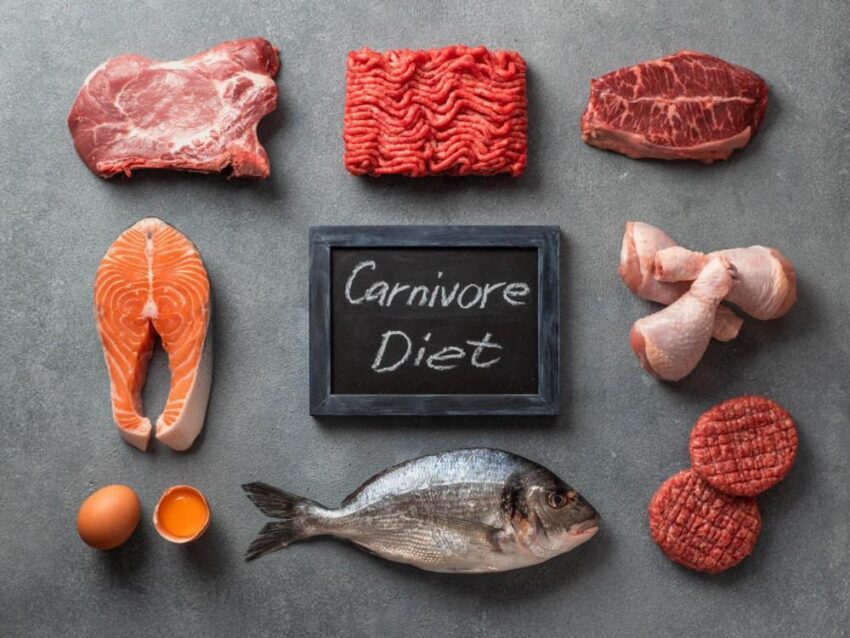Question: What is the carnivore diet, and is it safe?
Answer: The carnivore diet meal plan only allows consumption of meat, poultry, eggs, seafood, fish, some dairy products, and water. You need to exclude all vegetables, fruits, grains, legumes, seeds, and nuts. That’s why it is sometimes referred to as the “zero carb” diet.
The carnivore diet is a type of “keto,” or ketogenic, diet. Keto diets work like this: The contents of a keto diet do not provide enough calories from glucose and other forms of sugar. To compensate, the body burns fat that creates ketones as an energy source. Ketones are released into the bloodstream, which lowers the normal acid-base balance in blood to make it more acidic, a state known as ketosis.
A typical keto diet plan suggests approximately 70% to 75% of daily calories come from fat, 20% from protein, and no more than 10% from carbohydrates.
A carnivore diet is the most ketogenic diet because it allows for almost no carbs. Fat content is not specified; it’s whatever fat is contained in or consumed along with the meat, fish, poultry, and dairy.
What are the risks of a carnivore diet?
While some keto diets can emphasize the intake of healthier mono- and polyunsaturated fats, that’s not the case with carnivore diets. Animal fat is mostly saturated fat, which is the unhealthiest type of fat because it raises levels of LDL (bad) cholesterol.
The disadvantage of all keto diets is they tend to raise LDL cholesterol levels in both the short and long term. Other longer-term concerns about keto diets, especially the carnivore diet, include the increased risk of kidney stones, gout, and osteoporosis. Also, the very high protein intake associated with the carnivore diet can lead to impaired kidney function.
Because keto diets induce the body to burn fat, all keto diets can jump-start a weight-loss program. But I would never recommend a carnivore diet for this purpose.
About the Author

Howard E. LeWine, MD, Chief Medical Editor, Harvard Health Publishing; Editorial Advisory Board Member, Harvard Health Publishing
Dr. Howard LeWine is a practicing internist at Brigham and Women’s Hospital in Boston, Chief Medical Editor at Harvard Health Publishing, and editor in chief of Harvard Men’s Health Watch. See Full Bio
SOURCE: Harvard Health Publishing By Howard E. LeWine, MD
Want more articles like this? SUBSCRIBE NOW!


